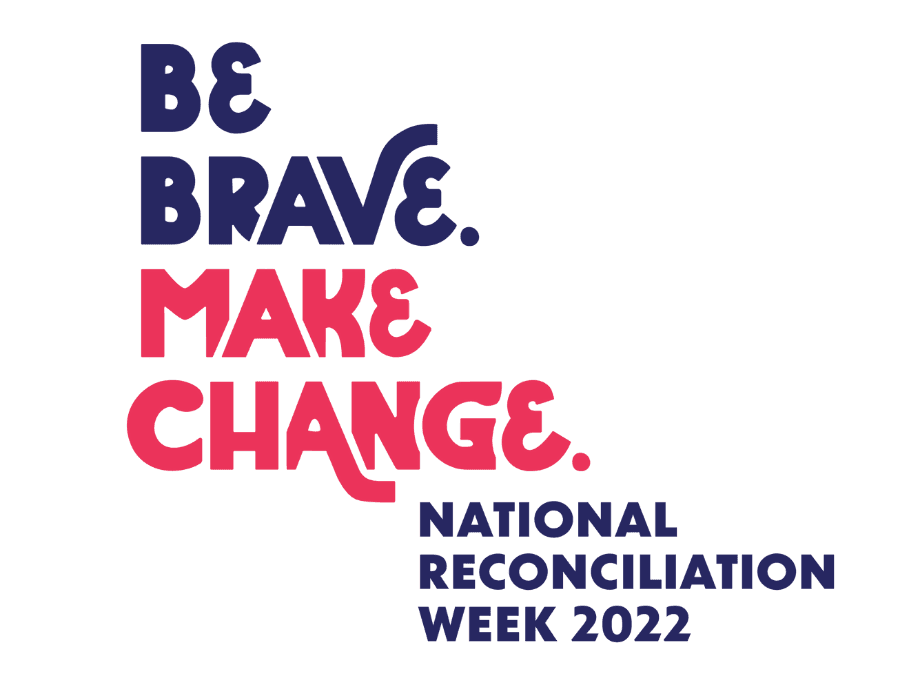Advocacy
Practice
National Reconciliation Week – 5 ways for ECEC services to be brave and make change

Freya Lucas
May 26, 2022
Save
National Reconciliation Week (NRW) commences tomorrow, 27 May, and will run through to 3 June, providing an opportunity for all Australians to learn about our shared histories, cultures, and achievements, and to explore how each of us can contribute to achieving reconciliation in Australia.
The dates on which NRW is held each year commemorate two significant milestones in the reconciliation journey: the successful 1967 referendum, and the High Court Mabo decision.For early childhood education and care (ECEC) services, NRW presents an opportunity to work alongside children and families to deepen knowledge and understanding of First Nations challenges and triumphs, and to build citizens who will be impactful drivers of change.
The 2022 theme Be Brave, Make Change invites Australians to consider how they can take steps to move beyond any fears they may have about “getting it wrong” and step into a space where they are making a difference.
“The theme should remind all individuals, not just teachers, that doing something is always better than doing nothing regarding Aboriginal education,” explained Josh Brown, a proud Wormi man and educator working with Deadly Ed.
“We need to stop this excuse of ‘I don’t do anything as I don’t want to offend’. Instead, back yourself to enable long-lasting change for our mobs.”
With that in mind, The Sector has prepared the following five suggestions to support educators, leaders, teachers and advocates in the ECEC sector to Be Brave and Make Change.
Start with the self
How informed are you about the experience and perspectives of First Nations people? Does your team consume content created by First Nations artists? Do you seek out information and entertainment sources like the National Indigenous Times, the Koori Mail, or NITV?
Changing content consumption and actively seeking out First Nations viewpoints and perspectives can open up a whole new world view that may never have been considered.
First Nations Media has a list of local broadcasters. Talk to the experts
There are a number of great resources available to support the ECEC sector to engage with the topic of reconciliation.
Narragunnawali and Learn our Truth are a great place to start. Services might also consider undertaking cultural competence professional development. These sessions, which are often delivered by First Nations people, can help teams to understand more deeply the lived experience of Aboriginal and Torres Strait Islander people.
Is your space safe?
While ECEC services put a lot of emphasis on maintaining spaces which meet occupational health and safety requirements, and the National Regulations, many haven’t considered the cultural safety of their service.
Take a brave look at the space - what signs, symbols and gestures tell First Nations people that they are welcomed, and belong in the service? Where are they represented? Is sticking a poster of the Aboriginal flag on the wall enough? Do the team understand the impact of intergenerational trauma on First Nations people, and the role this plays in their level of comfort with leaving their children in care?
There are a number of strategies that can help First Nations people to feel more culturally safe. Read about them here.
Money talks!
Many services might not consider the ethics of the purchases they make to improve the visibility of First Nations cultures in their service. After all, isn’t flying the flag and having some cushions with Aboriginal designs showing support?
One way to make a change is to commit to buying from First Nations businesses. Everything from the catering used for special events to the uniforms educators wear can be used to have a powerful impact in the reconciliation process.
As well as offering professional development for educators, Koori Curriculum offers a range of products for ECEC spaces. Shu Brown from Nunga Creations makes amazing dolls from Jarrah wood which fly off the shelves every time they are restocked, while Magabala Books is an Indigenous publishing house celebrating and nurturing the talent and diversity of Aboriginal and Torres Strait Islander voices.
These are just three of the many amazing businesses that ECEC services might consider supporting. A more comprehensive list can be found on Trading Blak.
Shine a light
While NAIDOC Week is a celebration of the achievements of First Nations culture, there is no reason it cannot continue all year round! Services can combat the negative stereotypes and media misrepresentations that give many people a harmful view of First Nations people by showcasing the achievements, strengths and resilience that the world’s oldest continuing culture continues to show.
Simple ways to do this are to create a good news board, be it physical or virtual, where the achievements of First Nations people are showcased.
Here is a great example. Although American in context, it gives some great examples of how achievements can be collated and showcased. In an ECEC context, this might look like seeking out a good news story once a week, or sharing news with families through newsletters or on a display board.
For more ideas about how to acknowledge NRW in your service, please see here.
Don’t miss a thing
Related Articles



















